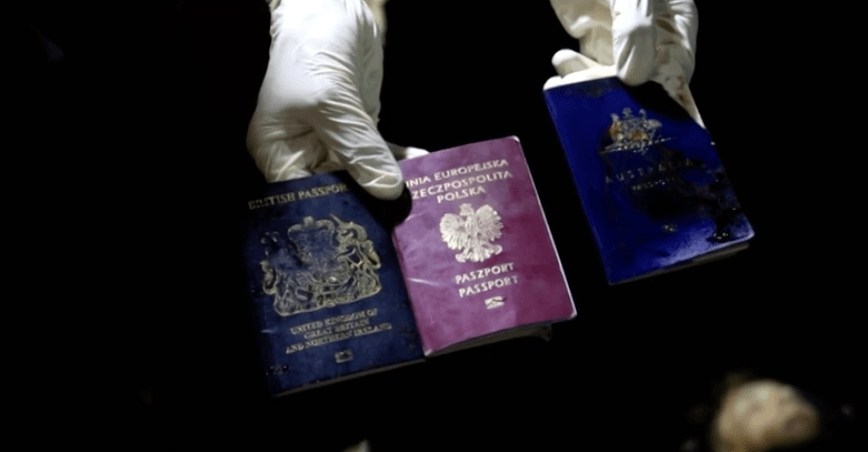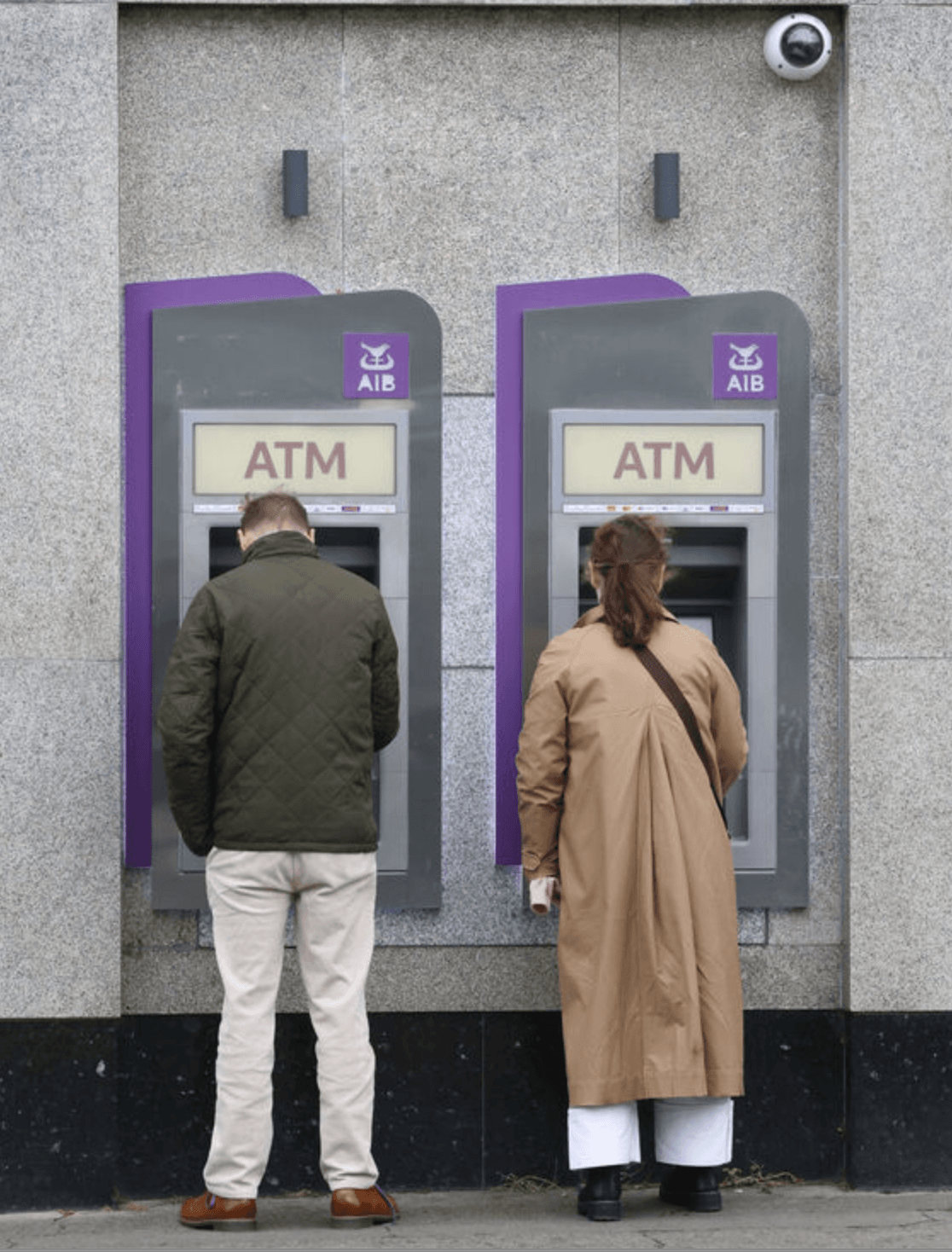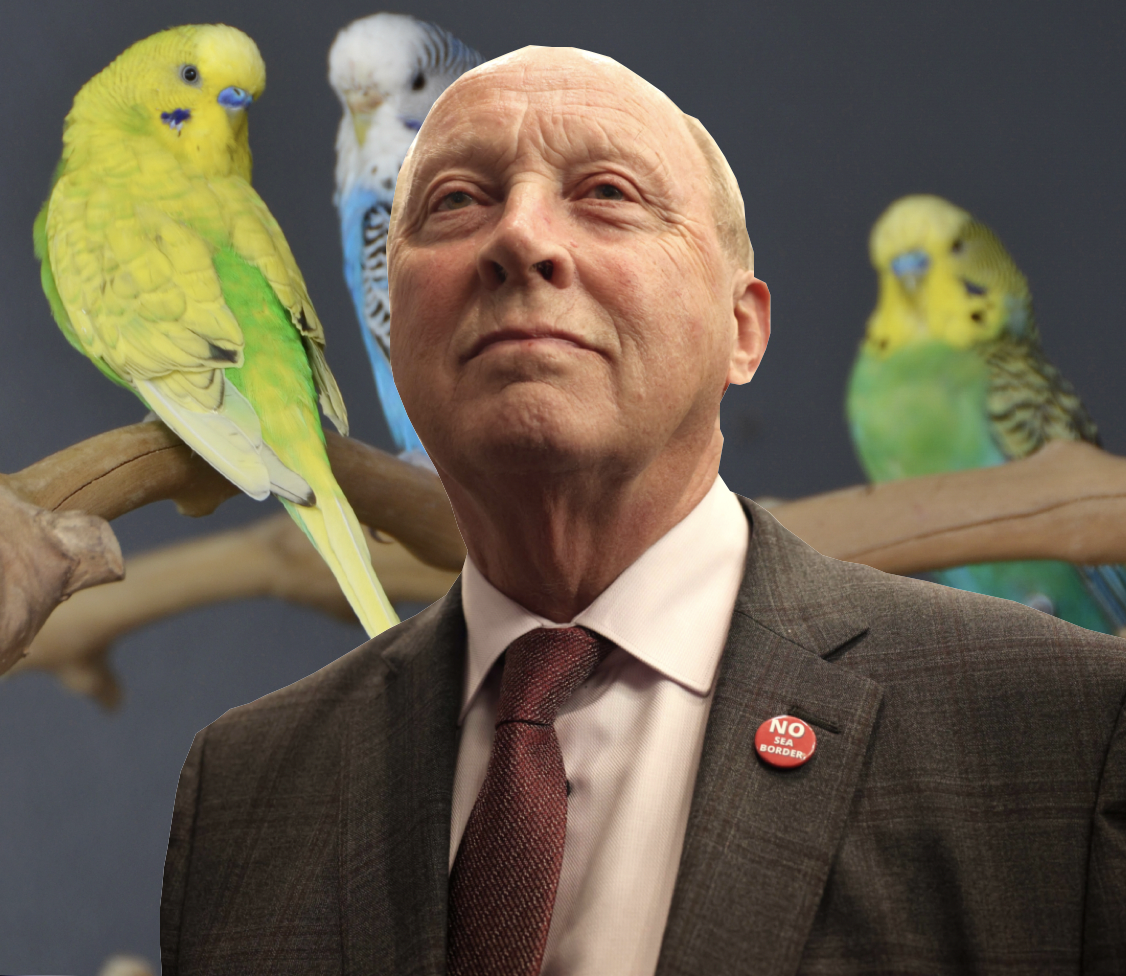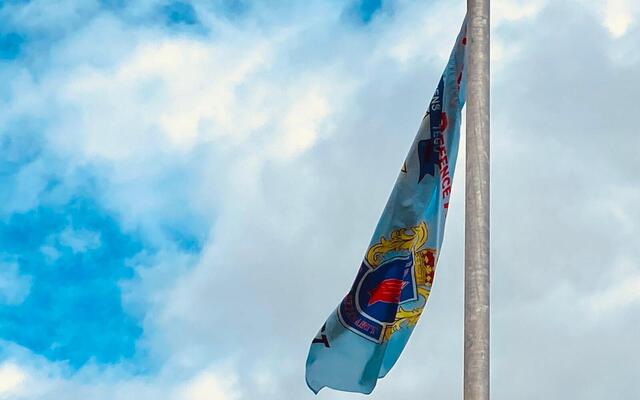BUDGIES weren’t quite a red line for me – or even a yellow, green or blue one.
Like most people, I was disgusted to learn last week from Jim Allister of the Budgie Ban that prohibits the import of small parrots from Ballymena from Blighty. Was it for this that Carson's Army took to the field? Did the heroic Drumcree stand deserve an insult of this magnitude?
But fuming though I was, I knew deep down in my Ulster-Scots core that more was to come; that I could not afford to exhaust my reserves of rage and my stockpile of bile because worse was on the way. And here it is.
£192 million being spent on border posts and 151 border staff employed for what? Because the EU Single Market is so fragile that the import of a budgie from Cheltenham to Cullybackey puts it in danger. pic.twitter.com/wgAwpmrUqz
— Jim Allister (@JimAllister) March 19, 2024
It came via that esteemed reporter David Thompson, whose already valuable stock rose steeply in my estimation when he jumped from the Nolan Show ship to sign on the SS News Letter just before Ormeau Avenue’s prized morning phone-in became the Former Biggest Show in the Non-Existent Country. There’s a man who knows what way the wind’s blowing.
Restlessly patrolling the Brexit ramparts on the look-out for every new Protocol threat, David stumbled across a bloke from Portadown who – his loyal heart breaking – unveiled the sorry tale of how the Irish Sea border has “killed” the love of his life: Canaries.
It hasn’t literally killed them – there aren’t cages full of brightly-coloured finches littering the bed of Beaufort Dyke's inky depths. Rather, it has killed the Armagh canary-fancier’s enjoyment of them by stopping the east-west free flow of feathered friends – just as it did with the budgies. And I’m just not having that.
Neither is Jim Allister, who raced from a TUV Cobra meeting on the budgie scandal to deal with the breaking news from David that canaries are now on the no-fly list too.
“Some may dismiss such problems,” he told David as he prepared to board a helicopter to Stormont, the rotor downdraft rustling his distinctive tufts. “The SDLP thought it a laughing matter when I raised a similar issue in the Assembly.”
This is believed to have been a reference to Mr Allister’s attempt last week to force an emergency Assembly debate on the Blanket Budgie Ban. As the North Antrim MLA passionately condemned Brussels, Dublin, the Moonies and International Rescue and appealed for the UK government to unblock the parakeet impasse, an unidentified SDLP MLA shouted: “Who’s a Britty boy?”
More on pages 2 to 48.
Editorial: Canary crisis cries out for unionist unity.
Why we're still in the dark after convoy massacre report
ISRAEL’S preliminary investigation into the IDF murder, sorry, killing, of seven aid workers from the World Central Kitchen (WCK) food charity has been completed. The first car hit was a case of “mistaken identity”; the second car hit was a “grave error”; and the third car hit was a second “grave error”.
It seems that because it was night-time the IDF guys operating the drones back at base weren’t able to see the WCK logos on the roof of the vehicles, which on first blush would, to the lay person, seem fair enough. But up to now we've been told that the vast majority of targeted attacks on Hamas members takes place at night when fighters are more likely to be at home and tucked up in bed, and given that these missiles, whether drone- or aircraft-launched, are so accurate and sophisticated that they can take out one side of the bed (the least you can expect for $750,000 a pop), I’m left wondering why night vision – a technology that’s been with us for 80 years – was suddenly not available at the time of the attacks.
Did they forget to turn it on? Did they buy Poundland batteries instead of Duracell?
And what happened to the fairly basic rule of conflict that you’re supposed to know what you’re shooting at before you start shooting?
MASSACRE: Blood-soaked passports of three of the victims of Israel's attack on a WCK convoy
Not that the night vision technology was the only failing. The WCK team made a number of phone calls – or had calls made on their behalf – from the beginning to the end of their final journey. They phoned in their route to the IDF before they set off, which obviously means that the IDF knew where the vehicles were and at what time, yet still the attacks went ahead. How come the info didn't get through as effectively as the missiles?
Perhaps the drone operators were in a queue on the DroneTech helpline trying to get help with that faulty night vision system when the warning to leave the aid workers alone came in. And perhaps in the excitement of hearing “You are number three in the DroneTech queue” meant they weren’t paying attention when the message came in that aid workers were staggering from blasted vehicles and desperately phoning in appeals for the attack to stop.
Which brings us with lights flashing and sirens sounding to the question of the difference between “mistaken identity” and “grave error”. Isn’t the mistaken identity that led to a missile slamming into a car filled with aid workers instead of one filled with Hamas fighters a grave error? And a seven-grave error at that? Will the courts order more compensation to be paid to the families of the dead for the mistaken identity or the grave error?
And finally – and perhaps most importantly – which is less likely to lead to blackly ironic tittering at a press briefing?
The man who broke the bank at Laois and Carlow
'PARNTLY a united Ireland is going to cost as much as Casement. Or maybe a bit more. A bit less, even, but we can be absolutely certain that it’s going to be at least as ruinously expensive as dual language street signs and Pride logos on PSNI Land Rovers.
£8 billion a year it’ll cost us when Johnny English pulls out, according to the authors of a new report by the Institute of International and European Affairs (IIEA) on the expected cost of reunification. If you’d like to experience the sensation of placing your hands around the warm, pumping heart of Official Ireland, I recommend you Google the IIEA. Its links with every party except one (take a wild guess) are too serpentine to outline in a mere column, so let’s just say it’s like a dinner party in Howth with Fine Gael, Fianna Fáil, the Greens, the Social Democrats and Labour getting rather vocal over the Chateauneuf du Pape.
£8 billion’s only one of two estimates, mind you. And before you puff out your cheeks in relief and sigh ‘Thank god for that,’ the other estimate is £20 billion.
£8 billion? £20 billion? That's a bigger margin of error than there was in my Irish Grand National picks at the weekend.
This report includes costs covered by the "NI subvention" than would not transfer to a united Ireland and takes such a pessimistic view of change than its conclusions are not reasonable. A short reply. https://t.co/xidiQ5OcUY
— John Doyle (@JohnDoyleDCU) April 4, 2024
It’s at this point in my criticism of the new report that the ghost of Christine Keeler points a gnarled and skeletal finger and admonishes the reader, ‘Ah, that Livingstone bloke – he would say that, wouldn’t he?’ And fair enough, I’m as likely as the next person to let my personal political preferences colour my reaction to news – especially 'Yeeeow!'-related news. But it’s not my rebel heart telling me that this story may not be the poison capsule for unity that BBC Ulster and RTÉ believe it to be, it's the eyes in my rebel head.
One of the report’s co-authors is most famous for being the Economic and Social Research Institute (ESRI) bean-counter who assured the island in 2008 that fears of a banking collapse were misplaced and sure we were going to be fine. He later told an Oireachtas committee that the mistake would “haunt me for the rest of my life.” And if the softie in you is shaking its head softly and going, ‘Ach, sure we all make mistakes,’ I should point out that the reason that the guy missed the collapse was because of beans he didn’t even bother counting.
Get this: He whacked out his 2008 forecast without taking a look at the chalk slate of the country’s major lending institutions. In other words, he said, 'Calm down everybody, trust the banks and party on' without having looked at the banks' books. That's like writing a report saying the Health Service is doing fine without checking on the hospitals.
DIGGING DEEP: How much will unity withdraw from the island's ATM?
It doesn’t follow that he’s wrong this time too, and it may well be that after the union jack is lowered in the leaving ceremony at Tayto Castle a visit to the communal credit union will be required. But when other experts point out that key financial elements that would hugely mitigate the report’s estimates have been left unconsidered, maybe it’s not me whistling past the graveyard after all.







